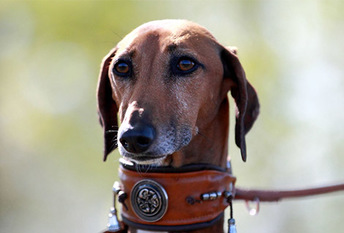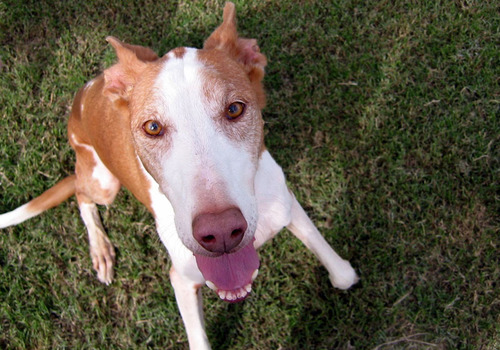Both shorthaired and wirehaired Ibizan Hounds are easy to groom. They require weekly brushing to remove loose and dead hair and maintain coat sheen. Bathe only as needed. Ibizans are naturally clean dogs, which makes baths only necessary once every few weeks.
Check the ears on a regular basis for signs of wax buildup, irritation or infection. Clean the ears with a cotton ball and a veterinarian-approved cleanser; never use a cotton swab in a dog's ear canal.
Teeth should be brushed on a weekly basis to prevent tartar buildup, promote gum health and keep bad breath at bay. Trim nails monthly if the dog does not wear the toenails down naturally outdoors.
Although Ibizan Hounds are incredible athletes, they do not need to go on marathon runs daily. A couple of good long walks or perhaps a morning jog daily is sufficient for most days.
They should be able to break out and run at full stride at least once each week. If you have a large fenced yard, it would be perfect. If not, you will need to find a good dog park or better yet, dog beach for the dog to completely stretch out and let loose!
The Beezer needs a diet of high-quality, dry dog food. They should be fed two meals daily as opposed to one large meal. Your dog’s breeder or veterinarian can help you select the best product for feeding your Ibizan Hound.
Learn about whichhuman foodsare safe for dogs, and which are not. Check with your vet or the dog’s breeder if you have any questions or concerns about your dog’s weight or diet.
Ibizan Hounds are generally healthy dogs, though there are some conditions the breed can be prone to. These includehip dysplasia, eye disease, autoimmune thyroiditis, and congenital deafness.Responsible breederswill screen their stock for conditions that can affect the breed. The website of the breed’s national parent club TheIbizan Hound Club of the United States provides detailed information on breed health. Regular visits to the vet for checkups and parasite control help to ensure the dog a long, healthy life.
Versatile and trainable, Ibizans make excellent family pets. The breed is even-tempered, affectionate, and loyal. The Ibizan is a bit aloof but a sweet-natured, family-oriented housemate.
Alert and watchful of strangers, they are nevertheless friendly and outgoing dogs. Puppies should be cheerful, playful, and healthy. Earlysocializationandpuppy training classesare recommended. Ibizans excel in a number of canine sports, includinglure coursing,obedience,agility,rally, andtracking.












